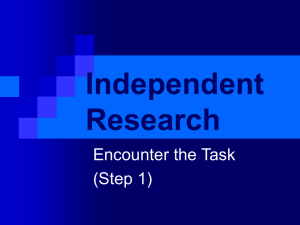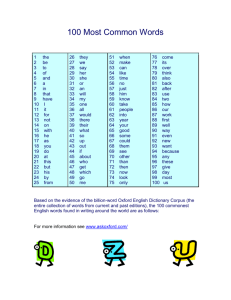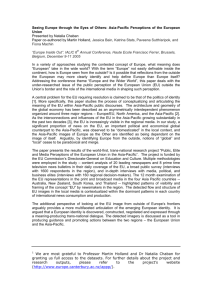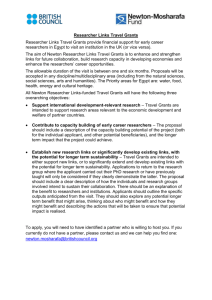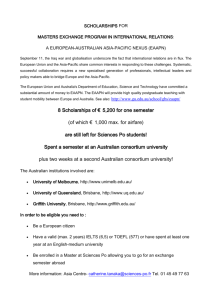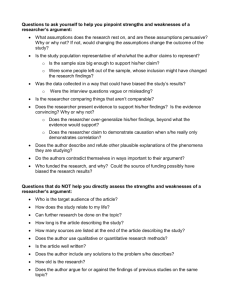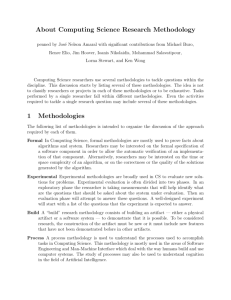Research Methods in Education, 7th Edition - Asia
advertisement
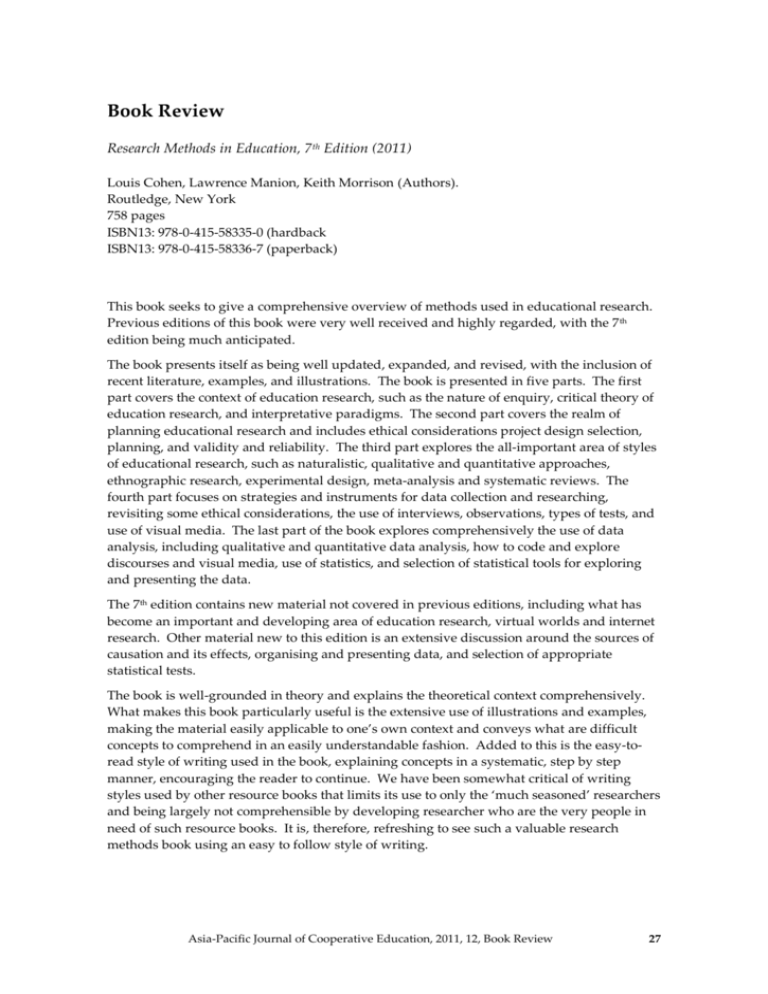
Book Review Research Methods in Education, 7th Edition (2011) Louis Cohen, Lawrence Manion, Keith Morrison (Authors). Routledge, New York 758 pages ISBN13: 978-0-415-58335-0 (hardback ISBN13: 978-0-415-58336-7 (paperback) This book seeks to give a comprehensive overview of methods used in educational research. Previous editions of this book were very well received and highly regarded, with the 7 th edition being much anticipated. The book presents itself as being well updated, expanded, and revised, with the inclusion of recent literature, examples, and illustrations. The book is presented in five parts. The first part covers the context of education research, such as the nature of enquiry, critical theory of education research, and interpretative paradigms. The second part covers the realm of planning educational research and includes ethical considerations project design selection, planning, and validity and reliability. The third part explores the all-important area of styles of educational research, such as naturalistic, qualitative and quantitative approaches, ethnographic research, experimental design, meta-analysis and systematic reviews. The fourth part focuses on strategies and instruments for data collection and researching, revisiting some ethical considerations, the use of interviews, observations, types of tests, and use of visual media. The last part of the book explores comprehensively the use of data analysis, including qualitative and quantitative data analysis, how to code and explore discourses and visual media, use of statistics, and selection of statistical tools for exploring and presenting the data. The 7th edition contains new material not covered in previous editions, including what has become an important and developing area of education research, virtual worlds and internet research. Other material new to this edition is an extensive discussion around the sources of causation and its effects, organising and presenting data, and selection of appropriate statistical tests. The book is well-grounded in theory and explains the theoretical context comprehensively. What makes this book particularly useful is the extensive use of illustrations and examples, making the material easily applicable to one’s own context and conveys what are difficult concepts to comprehend in an easily understandable fashion. Added to this is the easy-toread style of writing used in the book, explaining concepts in a systematic, step by step manner, encouraging the reader to continue. We have been somewhat critical of writing styles used by other resource books that limits its use to only the ‘much seasoned’ researchers and being largely not comprehensible by developing researcher who are the very people in need of such resource books. It is, therefore, refreshing to see such a valuable research methods book using an easy to follow style of writing. Asia-Pacific Journal of Cooperative Education, 2011, 12, Book Review 27 We have found this book to be very informative and thorough. The previous editions of this book were already well regarded and no doubt this revision will also serve as a useful and informative resource for all educational researchers, whether be a developing researcher or a well established researcher. We, therefore, would highly recommend this book to researchers and graduate research students, and we are of the opinion that all educational institutional libraries should hold copies of this highly regarded book. Dr Karsten E. Zegwaard Editor-in-Chief, Asia-Pacific Journal of Cooperative Education Prof Richard K. Coll Pro-Vice Chancellor (Teaching and Learning), University of Waikato, Hamilton, New Zealand. Asia-Pacific Journal of Cooperative Education, 2011, 12, Book Review 28
